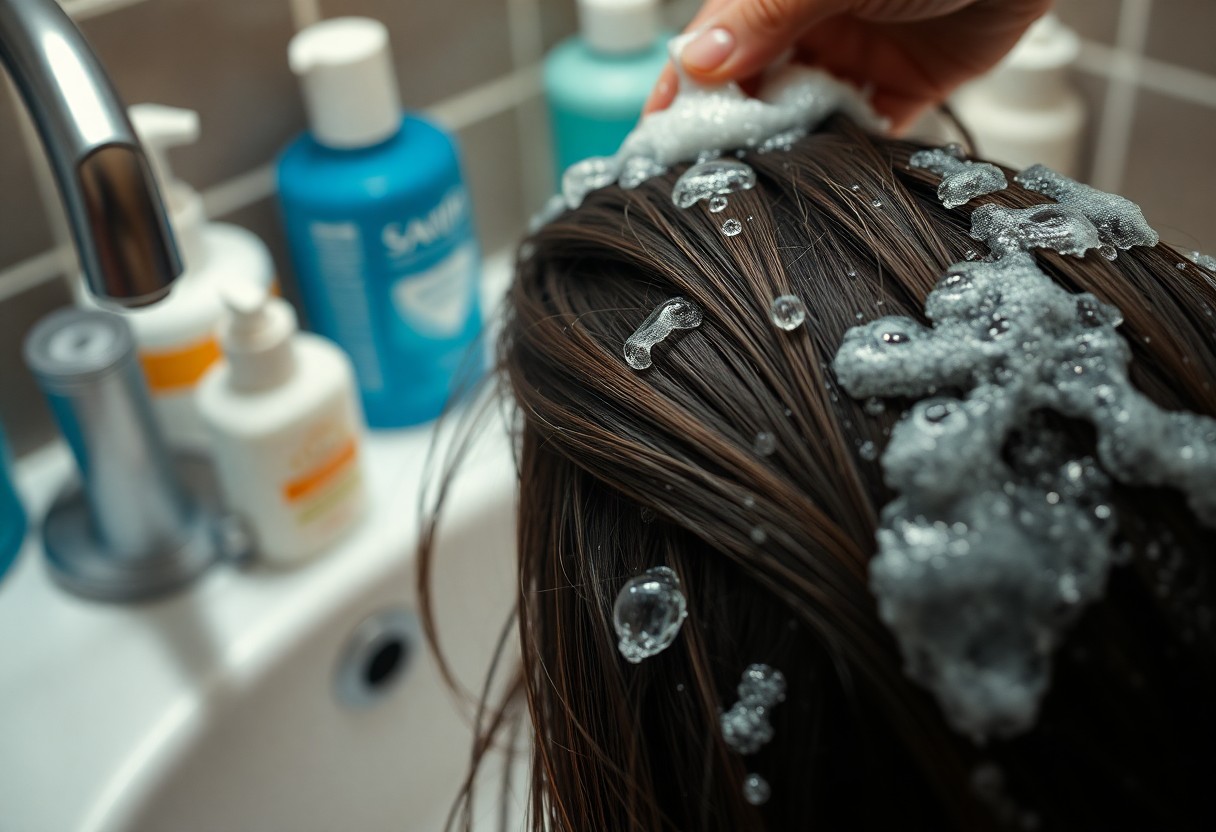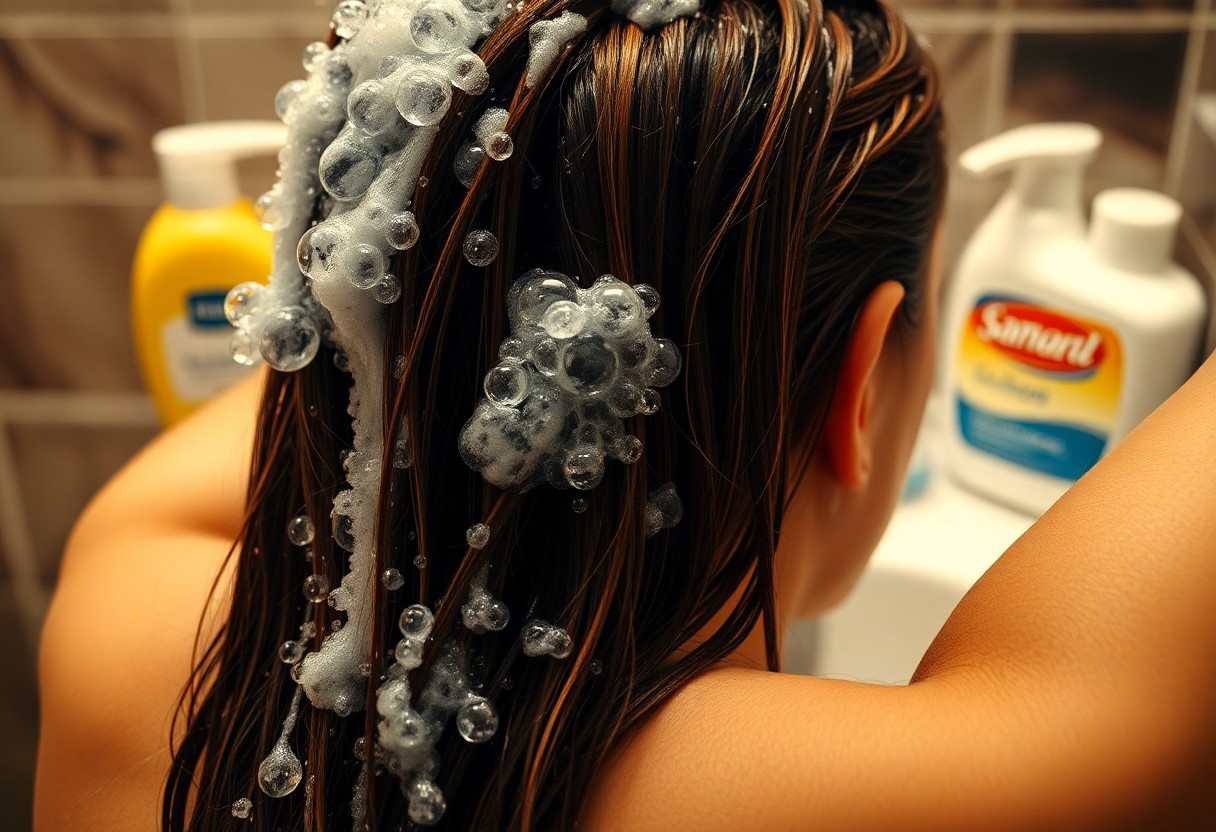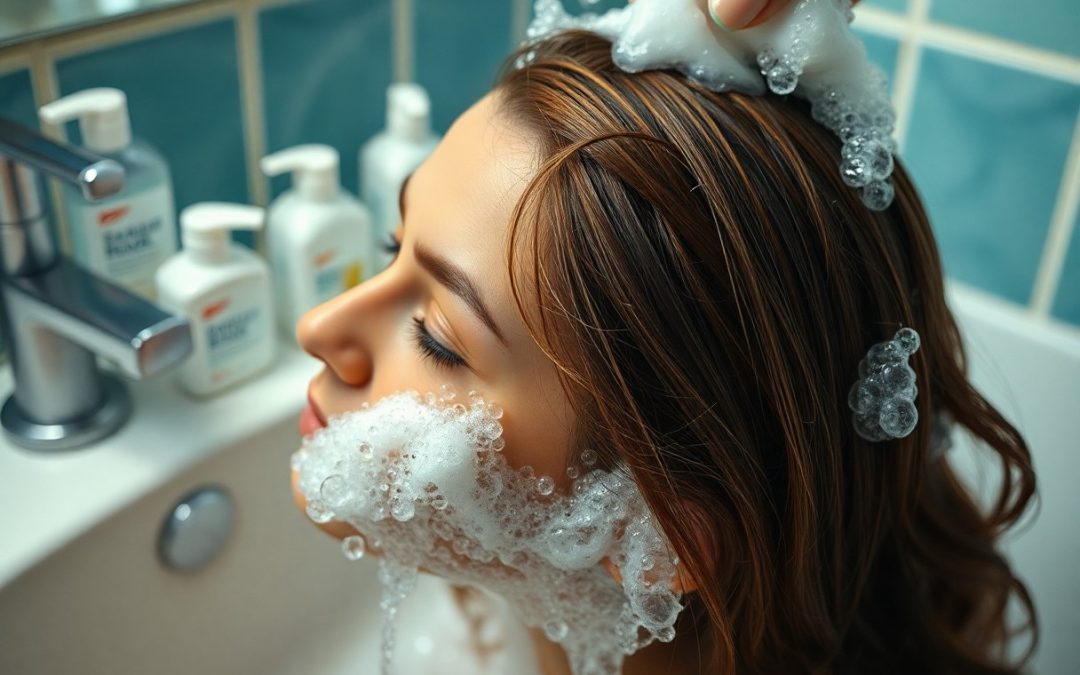With so many shampoos on the market, you may not realize that some ingredients can harm your hair and overall health. It’s vital to assess whether your shampoo contains damaging substances like sulfates, parabens, or synthetic fragrances, which can lead to dry, frizzy hair or irritation. On the other hand, choosing products with nourishing components can leave your hair looking healthy and vibrant. In this post, we’ll explore the potential risks and help you make informed decisions for your scalp and hair health.
Understanding Shampoo
Before you reach for your favorite shampoo, it’s important to consider what’s actually in it and how it affects your hair. Many shampoos contain a blend of ingredients designed for various purposes, but not all of them are beneficial. Understanding the balance between cleansing and conditioning can help you choose a product that suits your specific hair needs.
The Purpose of Shampoo
Understanding the role of shampoo goes beyond just cleansing; it’s about removing dirt, oil, and product buildup while conditioning your hair. A well-formulated shampoo should cleanse effectively while providing imperative nutrients to maintain your hair’s health and appearance.
Common Shampoo Ingredients
Around your next shampoo bottle, you might find a mix of ingredients, some good and others potentially harmful. Ingredients like sulfates and silicones can be damaging, leading to dry, frizzy hair over time, while fatty alcohols help condition and retain moisture, making them ideal for dry hair types. It’s imperative to scrutinize your shampoo’s ingredient list and avoid parabens, formaldehyde, and synthetic fragrances if you want to safeguard both your hair and overall health.

Harmful Shampoo Ingredients
You may not realize that your shampoo could contain ingredients that harm your hair and overall well-being. Certain components, like harsh sulfates and silicones, can strip your hair of its natural oils, leading to dryness, frizz, and damage over time. It’s vital to be aware of what’s in your shampoo to maintain healthy, vibrant hair.
Ingredients That Damage Hair
Above are several shampoo ingredients to avoid, including alcohols, which can dry out hair, and coal tar, which may pose risks for pregnant women. Additionally, silicones can create buildup, leaving your hair looking dull and lifeless. Choosing a product free from these harmful ingredients will help you keep your hair looking its best.
Ingredients That Impact Health
Among the harmful ingredients that can affect your overall health are benzene and formaldehyde. These substances have been linked to serious health issues, including skin irritation and potential long-term risks. It’s important to check shampoo labels for these ingredients to safeguard your health.
Hence, avoiding shampoos with these ingredients is vital for your health. Research shows that these chemicals may pose significant risks, making it vital to choose safer alternatives. Switching to hair products free from harmful components not only protects your hair but also supports your overall well-being.
The Impact of Over-Washing
It is easy to fall into the habit of washing your hair daily, but over-washing can lead to a variety of adverse effects. Stripping your hair of its natural oils can result in frizz, dryness, and irritation, making your hair look dull and lifeless. Experts suggest that finding a balance in your hair-washing routine is vital for maintaining the health of your hair and scalp.
Effects on Hair Health
Before you reach for that shampoo bottle again, consider how often you are washing your hair. Over-shampooing can lead to a lack of moisture, causing your hair to become more susceptible to damage and breakage. Finding the right frequency for your hair type is vital for its long-term health.
Signs of Over-Shampooing
Above all, if you notice your hair becoming increasingly dry, brittle, or lifeless, it might be time to reassess your washing routine. Your scalp may also feel itchy or irritated, signaling that you are stripping away vital oils.
A few key signs indicate you may be over-shampooing your hair. If you frequently experience persistent itchiness or flakiness on your scalp or if your hair feels excessively rough and lacks luster, these are strong indicators. Additionally, if you find that your hair becomes greasy more quickly after washing, this could suggest that your scalp is overcompensating for the natural oils lost, ultimately harming your hair’s overall health. Addressing these signs can help you create a healthier hair care routine.

Choosing the Right Shampoo
Unlike many conventional products, the right shampoo should cater to your specific hair type and concerns. Look for shampoos that are free from harmful ingredients like sulfates, parabens, and synthetic fragrances. By selecting products with beneficial components, you can help maintain the health and vitality of your hair.
Tips for Healthy Selection
Any time you are choosing a shampoo, consider the following tips:
- Avoid shampoos with harsh chemicals.
- Select products with natural ingredients.
- Look for shampoos that address your specific hair concerns.
This small checklist can lead you to a shampoo that nurtures rather than harms your hair.
Establishing a Shampoo Routine
Selection of how often you shampoo your hair depends on factors like your hair type and lifestyle. Aim to wash your hair according to your individual needs—too much washing can lead to dryness and dullness. You may want to consider using a gentle shampoo a few times a week while allowing your natural oils to nourish your locks on off days. This approach can help prevent irritation and maintain the overall balance of your scalp.
Another effective strategy is to alternate your shampoos, especially if you have sensitive skin or are dealing with hair thinning issues. This can help combat buildup and irritation caused by overusing products containing harmful ingredients, like benzenes or formaldehyde. By understanding your hair’s unique needs, you can improve its strength and overall appearance while ensuring its health.
To wrap up
Hence, it’s crucial for you to be mindful of the ingredients in your shampoo, as certain components can negatively impact both your hair and overall health. By avoiding harmful ingredients and selecting products suited to your hair type, you can maintain healthy hair and a balanced scalp. Take time to assess your hair care routine and make informed choices to ensure your hair remains vibrant and resilient.
FAQ
Q: Can the ingredients in my shampoo harm my hair or overall health?
A: Yes, some common shampoo ingredients can be detrimental to both your hair and overall health. Ingredients such as sulfates and silicones can strip hair of its natural oils and lead to dryness or irritation. Additionally, chemicals like parabens and synthetic fragrances have raised concerns regarding their potential long-term effects on health. It’s advisable to avoid products containing harmful additives and to choose shampoos that are free from known irritants.
Q: How often should I wash my hair to avoid damage?
A: The frequency of hair washing should be tailored to individual hair types and lifestyles. Over-shampooing can lead to frizz, dryness, and irritation, while infrequent washing may lead to buildup. Generally, experts recommend washing hair based on how oily your scalp gets and the products you use. For most people, washing every 2-3 days is sufficient. If you use many styling products, you might need to wash more frequently, but it’s important to balance this with the potential negative impact on hair health.
Q: Are there any specific shampoo ingredients I should look out for to protect my hair?
A: Yes, you should be cautious of several ingredients that can harm your hair and overall health. Avoid shampoos that contain alcohol (specifically drying types), coal tar, and sulfates, as these can strip moisture and lead to damage. Instead, look for shampoos that incorporate hydrating ingredients like fatty alcohols, natural oils, or botanical extracts to promote better hair conditioning and retention of moisture.


